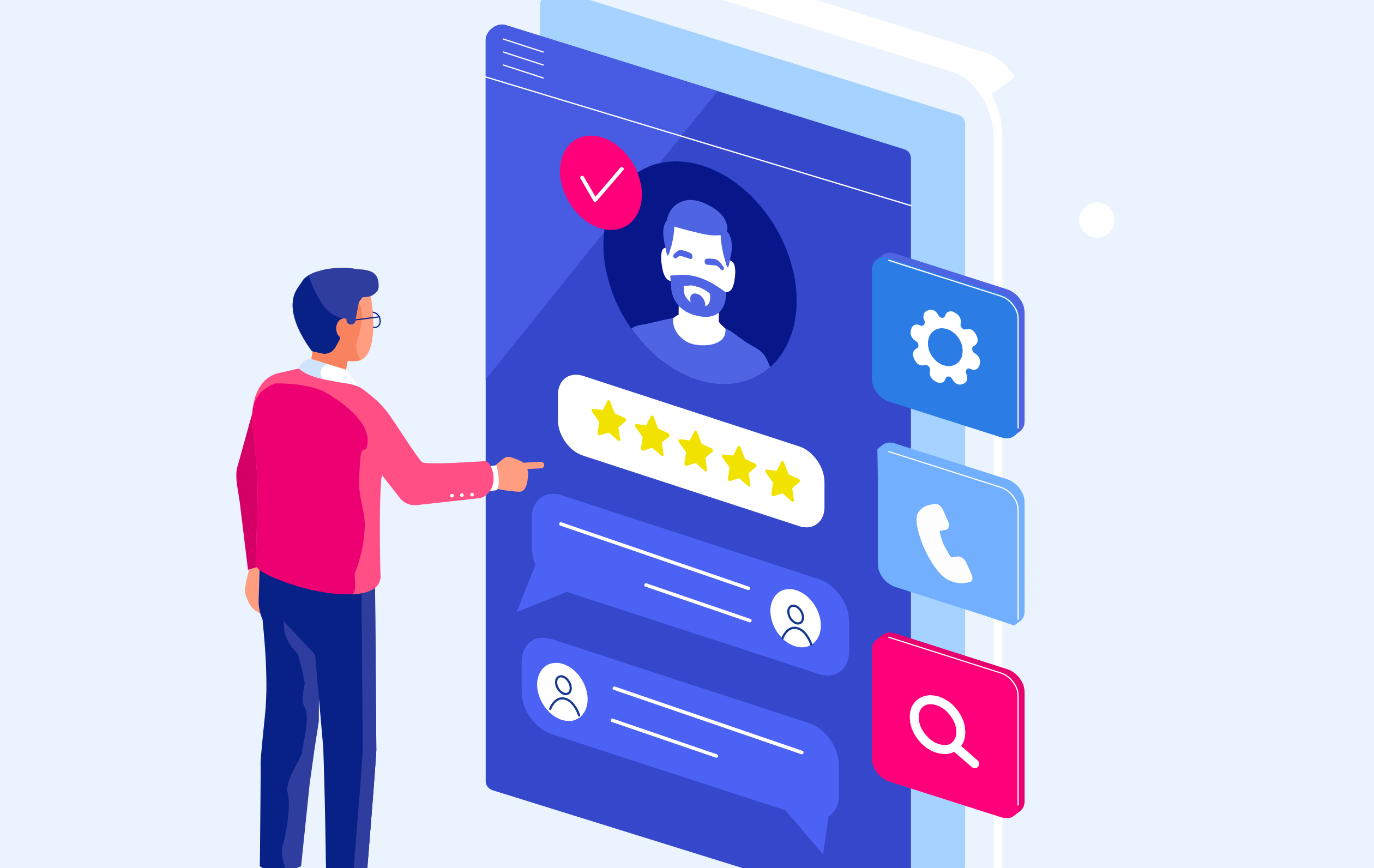
See why top ecommerce brands use Miva’s no-code platform to run
multiple stores, manage massive catalogs, and grow their revenue.
Excellent B2B customer service is essential in modern B2B sales, as it helps shoppers with complex buying needs move through the shopping experience efficiently while providing enhanced sales opportunities for the merchant. In this blog, we’ll explore three important questions to ask about your customer service systems, with key areas to focus on for improvement.
There is no greater badge for the health of your company than how swiftly it addresses customer questions and concerns, and how effectively it solves for those issues. In the B2B sector, clients often have very specific product needs, a complex buying cycle, and customized pricing which requires more direct support to manage. Any issue, if not addressed promptly, can have a cascading effect, leading to potential project delays or financial setbacks for your customer. For these reasons, swift issue resolution must be a top priority for merchants.
Regular training: Customer service programs need to evolve along with the changing product catalog, customer trends, and external conditions which affect successful shopping. This requires constant training which keeps reps equipped to handle whatever issues arise.
Efficient communication channels: Strong communication and a robust reporting system are the linchpin of excellent customer service, as they allow team members to share issues and alert relevant departments which need to take action. This might include informal work chat platforms, formal support ticket generation, and most importantly, a healthy workplace culture which seeks to root out problems quickly.
Proactive issue detection: The sooner you know about customer or product issues, the sooner you can resolve them. While the pain points around a given product or business are unique and will have different indicators, businesses can keep their finger on the pulse of business operations by using integrated data from CRM, ERP, OMS, WMS, and other systems to detect slow-downs, gather feedback, and address issues before they escalate.
Building and maintaining relationships is at the heart of B2B customer success. The cost of acquiring a new client often outweighs the cost of retaining an existing one by as many as five times—making nurturing relationships essential to long term profitability. For B2B, long-term relationships are often more lucrative than one-time transactions. Building trust through exceptional service ensures that clients stay loyal, leading to repeat business, referrals, and better customer retention rates.
Regular check-ins: Engage with clients periodically to understand their evolving needs and feedback. This ensures that clients feel like their concerns are being heard, and gives them the confidence that future issues will also be resolved.
Value-add services: Educational content or services can be an excellent form of customer service. Instructional webinars, workshops, or exclusive content that benefits the client’s business can all help solve common issues before disruption. These services also cut down on future resource needs for the business, by answering questions before there’s a problem. Even a simple site FAQ can save customers—and customer service reps—valuable time.
Loyalty programs: Consider implementing reward schemes or discounts for long-standing customers. A small investment in rewarding repeat customers can help keep those relationships strong over time.
Good customer service opens up opportunities for upselling or introducing clients to additional offers they might benefit from. When a customer presents a problem, question, or service request to a customer service system, they are self-identifying areas of their shopping experience which might need improvement. Perhaps there are other products in your catalog which might be better solutions for the buyer, or complement their specific use case. By turning the customer service request into a dialogue about what the customer needs, businesses can help shoppers improve their results by encouraging new purchases.
Deep product knowledge: Ensure that your B2B customer service team is thoroughly well-versed with all of your offerings, in order to spot upsell opportunities naturally. B2B shoppers are often experts in their own field, so in order to sell more, your reps need to be able to converse about products with total expertise. Read more about ways to organize a product catalog here.
Solicit customer feedback: Establishing a system to gather customer feedback can help identify potential areas where a new product or service can fill a gap in the client's business. By asking for feedback as a year-round practice, issues and trends that guide sales strategies might reveal themselves sooner, while providing ample opportunities to offer new products and solutions to customers.
Personalized offers: Successful upselling requires making offers which are directly relevant to customer purchases and preferences. The more personalized an ecommerce experience feels, the more customers feel confident that their specific needs are being met, and the more likely they are to continue that relationship with more purchases in the future. Tailor special deals or packages based on the client’s unique needs and shopping/history with your business. Read a comprehensive guide to effective upselling here.
By focusing on the speed that issues are resolved, nurturing customer retention, and leveraging opportunities for upselling, B2B customer service systems can become a loyalty engine which simultaneously increases sales. Incorporating these elements effectively can turn customer service from a reactive function into a proactive opportunity, ensuring that your customers and your business succeed together.

Katy Ellquist, Miva’s Digital Marketing Strategist, is an accomplished writer, marketer, and social media analyst who has created sophisticated content campaigns for a broad range of professional clients. She brings to Miva a complex understanding of ecommerce trends and techniques, building upon extensive digital agency experience and a prior role as direct liaison to Miva’s top accounts. Katy is a regular contributor to the Miva blog, covering essential ecommerce topics like design & development strategy, site optimization, and omnichannel selling, with the goal of increasing the actionable knowledgebase of the entire Miva community.
Love it? Share it!
No worries, download the PDF version now and enjoy your reading later...
Download PDF